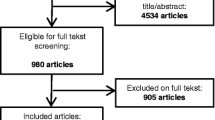Abstract
Background and Aims
Lower gastrointestinal endoscopy is crucial in the diagnosis and staging of inflammatory bowel disease (IBD). However, there are limited safety data in pregnant populations, resulting in conservative society guidelines and practice patterns favoring diagnostic delay. We studied whether performance of flexible sigmoidoscopy is associated with adverse events in pregnant patients with known or suspected IBD.
Methods
A retrospective cohort study was conducted at the University of California San Francisco (UCSF) between April 2008 and April 2019. Female patients aged between 18 and 48 years who were pregnant at the time of endoscopy were identified. All patient records were reviewed to determine disease, pregnancy outcomes, and lifestyle factors. Two independent reviewers performed the data abstraction. Adverse events were assessed for temporal relation with endoscopy.
Results
We report the outcomes of 48 pregnant patients across all trimesters who underwent lower endoscopy for suspected or established IBD. There were no hospitalizations or adverse obstetric events temporally associated with sigmoidoscopy. 78% (38/50) of lower endoscopies performed in the patients resulted in a change in treatment following sigmoidoscopy. 12% (5/43) of the lower endoscopies performed in patients with known IBD showed no endoscopic evidence of disease activity despite symptoms.
Conclusions
Lower endoscopy in the pregnant patient with known or suspected IBD is low risk and affects therapeutic decision making. It should not be delayed in patients with appropriate indications.
Similar content being viewed by others
References
Abhyankar A, Ham M, Moss AC. Meta-analysis: the impact of disease activity at conception on disease activity during pregnancy in patients with inflammatory bowel disease. Aliment Pharmacol Ther. 2013;38:460–466.
Mahadevan U, Martin CF, Sandler RS, et al. PIANO: a 1000 patient prospective registry of pregnancy outcomes in women with IBD exposed to immunomodulators and biologic therapy. Gastroenterology. 2012;142:S-149.
Mahadevan U, Robinson C, Bernasko N, et al. Inflammatory bowel disease in pregnancy clinical care pathway: a report from the American Gastroenterological Association IBD Parenthood Project Working Group. Gastroenterology. 2019;156:1508–1524.
Broms G, Granath F, Linder M, et al. Birth outcomes in women with inflammatory bowel disease: effects of disease activity and drug exposure. Inflamm Bowel Dis. 2014;20:1091–1098.
Body C, Christine JA. Gastrointesinal diseases in pregnancy: nausea, vomiting, hyperemesis gravidarum, gastroesophageal reflux disease, constipation, and diarrhea. Gastroenterol Clin North Am. 2016;45:267–283.
Van den Broe NR, Letsky EA. Pregnancy and the erythrocyte sedimentation rate. BJOG. 2001;108:1164–1167.
Tandon P, Leung K, Yusuf A, et al. Noninvasive methods for assessing inflammatory bowel disease activity in pregnancy: a systematic review. J Clin Gastroenterol. 2019;53:574–581.
Van Rheenen PF, Van de Vijver E, Fidler V. Faecal calprotectin for screening of patients with suspected inflammatory bowel disease: diagnostic meta-analysis. BMJ. 2010;15:c3369.
Waugh N, Cummins E, Royle P, et al. Faecal calprotectin testing for differentiating amongst inflammatory and non-inflammatory bowel diseases: systematic review and economic evaluation. Health Technol Assess. 2013;17:15–19.
Rokkas T, Portincasa P, Koutroubakis IE. Fecal calprotectin in assessing inflammatory bowel disease endoscopic activity: a diagnostic accuracy meta-analysis. J Gastrointestin Liver Dis. 2018;27:299–306.
ASGE Standard of Practice Committee, Shergill AK, Ben-Menachen T, et al. Guidelines for endoscopy in pregnant and lactating women. Gastrointest Endosc. 2012;76:18–24.
EPIC Electronic Health Record Software. www.epic.com. Accessed 2 Jan 2018.
Jonckheere AR. A distribution-free k-sample test again ordered alternatives. Biometrika. 1954;41:133–145.
Terpstra TJ. The asymptotic normality and consistency of Kendall’s test against trend, when ties are present in one ranking. Indagationes Mathematicae. 1952;14:327–333.
Ludvigsson JF, Lebwohl B, Ekbom A, et al. Outcomes of pregnancies for women undergoing endoscopy while they were pregnant: a nationwide cohort study. Gastroenterology. 2017;152:554–563.
De Lima A, Zelinkova Z, van der Woude CJ. A Prospective study of the safety of lower gastrointestinal endoscopy during pregnancy in patients with inflammatory bowel disease. J Crohns Colitis. 2015;9:519–524.
Gisbert JP, McNicholl AG. Questions and answers on the role of fecal calprotectin as a biological marker in inflammatory bowel disease. Dig Liver Dis. 2009;41:56–66.
Manosa M, Navarro-Llavat M, Marin L, et al. Fecundity, pregnancy outcomes, and breastfeeding in patients with inflammatory bowel disease: a large cohort survey. Scand J Gastroenterol. 2013;48:427–432.
Cornish J, Tan E, Teare J, et al. A meta analysis on the influence of inflammatory bowel disease on pregnancy. Gut. 2007;56:830–837.
Bates E, Rouse D, Mann M, et al. Neonatal outcomes after demonstrated fetal lung maturity prior to 39 weeks of gestation. Obstet Gynecol. 2010;116:1288–1295.
Acknowledgments
The authors thank the UCSF Academic Research Systems unit including Dana Ludwig and Boris Oskotsky for electronic health record database generation and management. They also thank members of the UCSF Division of Gastroenterology for valuable discussion and feedback on this work.
Funding
VAR was supported by the National Institute of Diabetes and Digestive and Kidney Disease of the National Institutes of Health under award number T32 DK007007-42. UM was supported by a senior research award from the Crohn’s Colitis Foundation of America.
Author information
Authors and Affiliations
Contributions
MSK was involved in conception and design, analysis and interpretation of data and drafting of article. VAR was involved in conception and design, analysis and interpretation of data and drafting of article. PA was involved in analysis and interpretation of the data and drafting of article. UM was involved in conception and design, critical revision of the article for important intellectual content and final approval of the article.
Corresponding author
Ethics declarations
Conflict of interest
None from all authors.
Additional information
Publisher's Note
Springer Nature remains neutral with regard to jurisdictional claims in published maps and institutional affiliations.
Electronic supplementary material
Below is the link to the electronic supplementary material.
Rights and permissions
About this article
Cite this article
Ko, M.S., Rudrapatna, V.A., Avila, P. et al. Safety of Flexible Sigmoidoscopy in Pregnant Patients with Known or Suspected Inflammatory Bowel Disease. Dig Dis Sci 65, 2979–2985 (2020). https://doi.org/10.1007/s10620-020-06122-8
Received:
Accepted:
Published:
Issue Date:
DOI: https://doi.org/10.1007/s10620-020-06122-8




